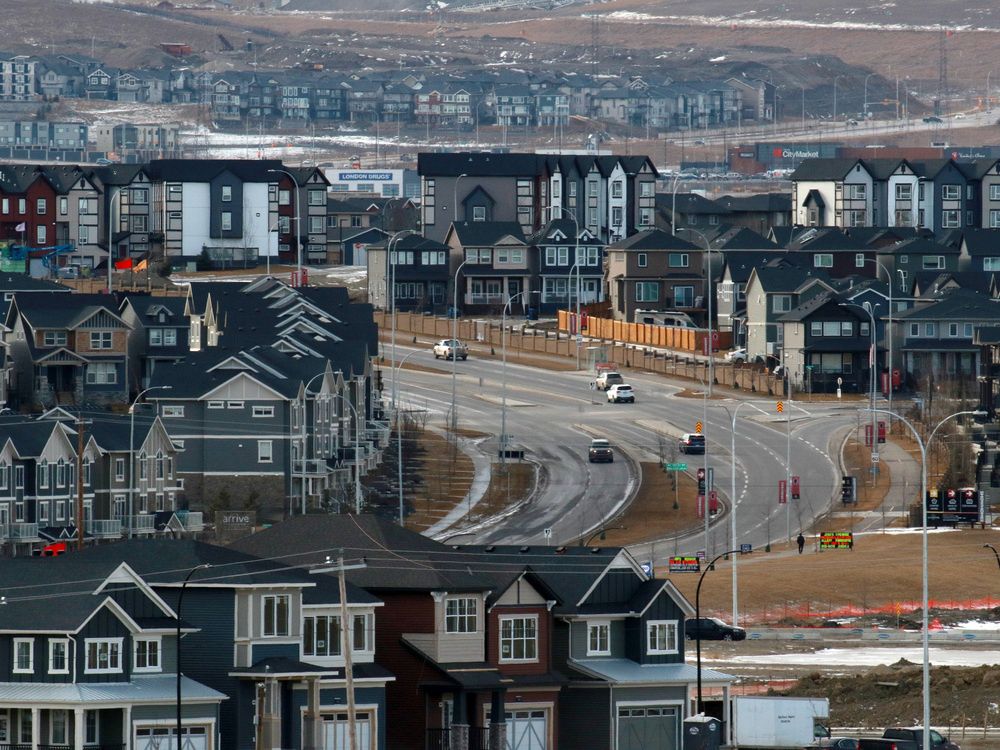I think this a part of the reason that Calgary's redevelopment and intensification actually exceeds perceptions set by the baby-boom generation of the RW types, even if there still is substantial growth on the edge. The suburbs aren't particularly affordable on paper, let alone factoring other lifestyle costs.
Even regionally Cochrane, Airdrie and Chestermere all don't have particularly cheap houses anymore, many areas of these bedroom communities exceed Calgary's burbs in price, even some of Calgary's existing communities. A quick non-scientific google suggests many new mid-range SFH 20km from the core go for $500 - $750K, depending on the quadrant and area. This cost also comes with others including punishingly long commutes for most daily activities and the costs for multi-car ownership in many cases.
Calgary's price gradient for homes is remarkably shallow - the price doesn't drop as much as I would expect to make the the burbs the always and forever, obvious answer for the cost-conscious home-buyer. Either that or the RW types are totally correct - the demand for new burb SFH is so insatiable the market bids them up so they are over-priced given the lifestyle and amenities.
Either way, there's a reason we've seen non-stop redevelopment in most inner city areas for going on 2 or 3 decades now - demand.
The value proposition for more central living is actually increasingly obvious for even people that aren't particularly urban aficionados. And it's not just the highly urban lifestyle in the Beltline that continues to improve and have no true competition for walkable, amenity rich density, it's the whole stretch of the inner city neighbourhoods 5km out in every direction that are competitive. This forum is a testament to it - there's always stuff going on in almost every community, almost every inner city community is expanding housing types, choices and amenities in response to demand.
Perhaps that's the part of the RW articles that feels most out of touch - 25 years and 500,000 people ago the burbs were cheap and the other costs (e.g. car ownership costs, commute times) were more reasonable. You could write these articles every week. Now, it's far less obvious there's a dominant trend as the direct and indirect costs of living in the burbs has increased and the options of the inner city have improved. Further, the inner city shows little sign of slowing down regardless of how we are continually told that suburbs are the obvious, more affordable and preferred option for everyone.

www.google.com





